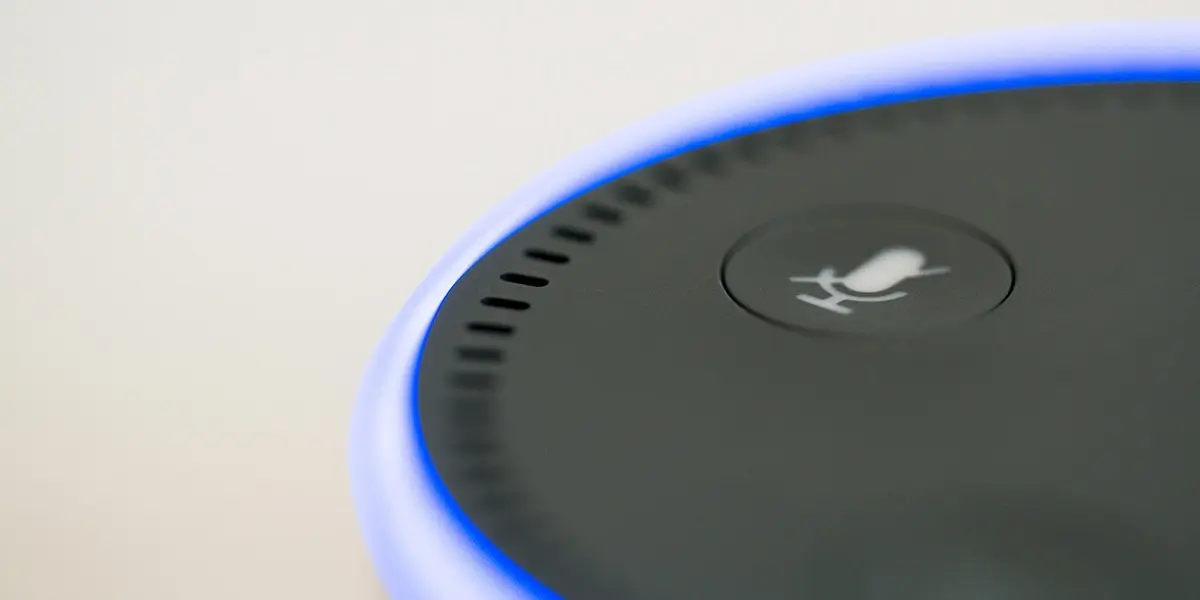If you’re interested in becoming a voice designer, let’s have a look at what the future might hold for this cutting edge industry.
“Voice is the next major disruption in computing.”
Max Amordeluso, EU head of Alexa Skills Kit (ASK) at Amazon
Here’s what we’ll discuss:
- A brief introduction to voice technology and VUI
- Voice technology: The future is now
- Making the VUI ubiquitous
- New technology creates new challenges
1. A brief introduction to voice technology and VUI
Did you ever watch the Star Trek series? Can you recall the voice-controlled spaceship there? Maybe not, but Star Trek has had a significant impact on our lives.
Way back in November 2014, Amazon introduced the Alexa cloud service with the first smart speaker device, Amazon Echo, inspired by the TV series created decades earlier. It is the power of a dream. Almost anything one can imagine is possible to create some day.
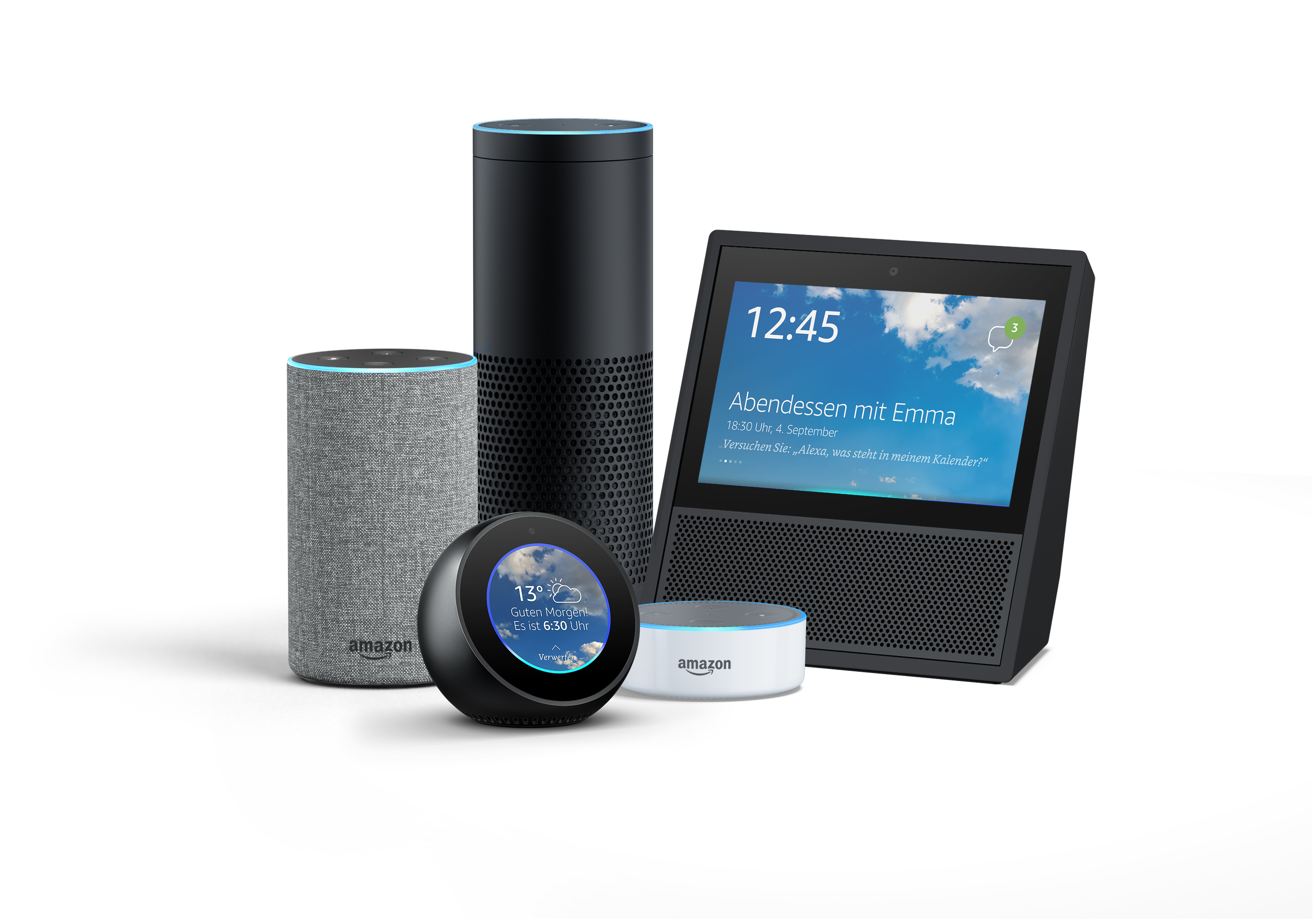
Amazon Echo devices
Source: Amazon.com
In 2015, Amazon opened up the Alexa platform for developers outside the company to create their own voice applications. Now just three years later we are witnessing the fastest spreading technology in the history of humankind, the voice design revolution driven by tech giants like Amazon and Google.
What’s unique about a voice user interface (VUI)?
Language is the most natural medium for us to communicate with each other. We make requests or ask questions, we express our dreams by speaking.
Richard Saul Wurman, creator of the TED conference, said: “There is nothing else we can do better when we do conversation well. There is no other communication device that provides such subtle and instantaneous feedback, nor permits such a range of evaluation and correctability.”
This has not changed since the beginning of humanity. The ancient art of the conversation continues, and that makes VUI design so in demand.
2. Voice technology: The future is now
“The future is already here — it’s just not very evenly distributed.”
William Gibson, writer
For a video overview of how VUI is game-changing, check out this video:
Whether voice technology will replace screens has yet to be seen, but this much is true: voice user interfaces enrich our lives. It is not just the possibility of listening to music, entertaining our children or buying goods online easily.
Visually impaired people already benefit from voice. They can control the radio, access calendar events and music libraries, make calls. There is a new category of Voice games on the market. Big brands like Sony, new players like Volley Inc. and many others create splendid quizzes, trivia games and interactive stories.
The Text To Speech (TTS) technology makes it possible for Alexa to read books from the Kindle library. Alexa can be an extension for your memory, storing the birthdays of friends and important family facts.
Wheelchair users can have more control over their environment by controlling their smart homes using voice. Without moving a hand or needing to find the switch, it is possible to set the temperature at home, dim the lights or control a TV set.
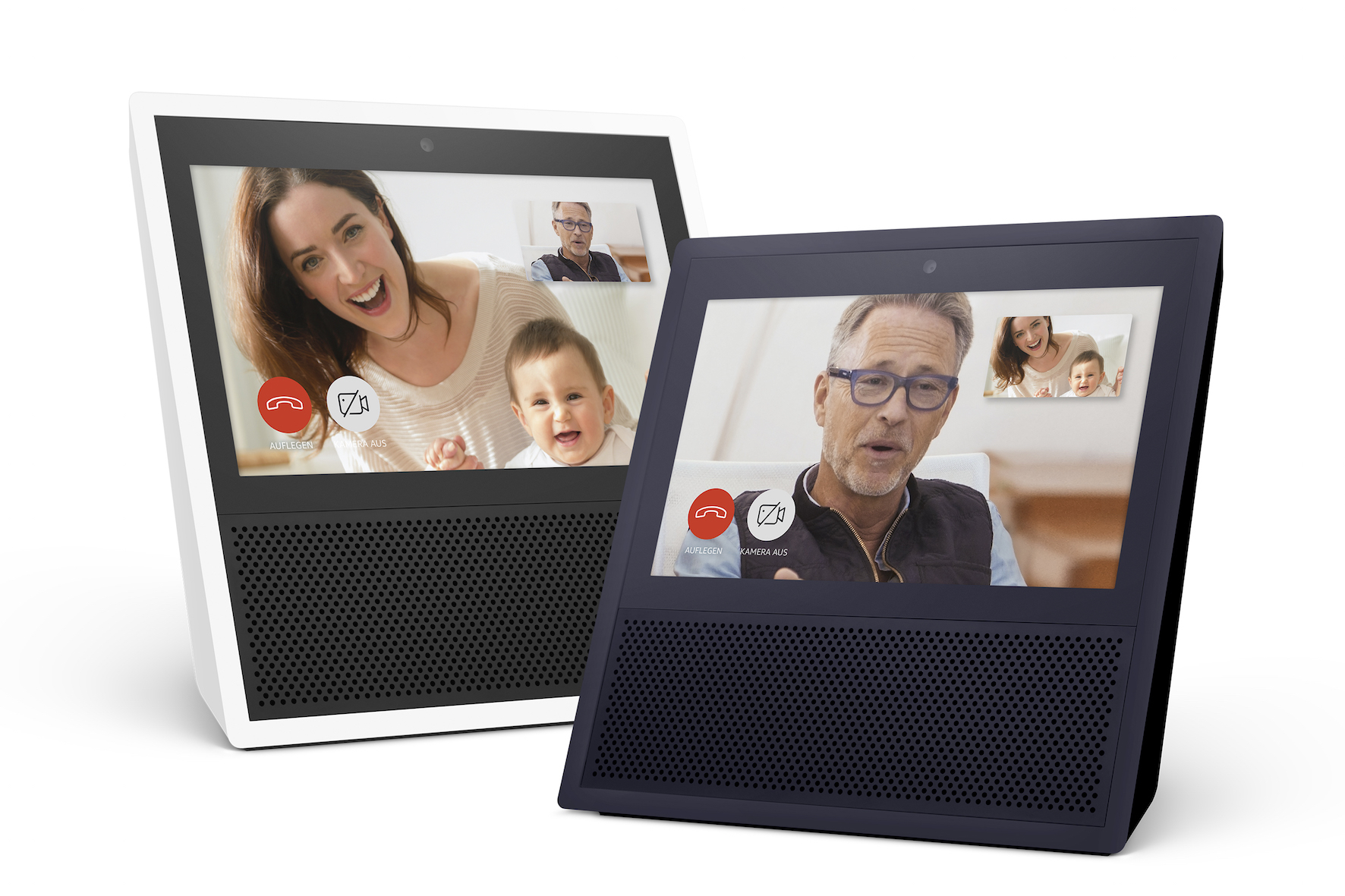
Source: Amazon.com
Steffen Prey, an Alexa developer from Germany who is reliant on a wheelchair, says:
“In my particular situation, language and writing have always been the most important communication channels. That’s why intelligent voice assistants are the perfect everyday helper for me.
They help me to compensate for the disadvantages of my disability and to be able to participate better in life. For example, if I can switch on or dim my lamps by voice command, this makes my everyday life more comfortable.
I can also listen to my favorite radio station or music. Isn’t that just perfect? Besides, Alexa is even able to help me with emergency calls in case of an accident. That gives me a feeling of security.”
With our busy lives and having to use small screens, everyone feels a little restricted. Voice will be a great relief for all of us to overcome this limitation.
With voice, our eyes are not limited by screen size and our hands are not overloaded by the weight of the device. You do not need to learn how to use different appliances; this is self-explanatory by design.
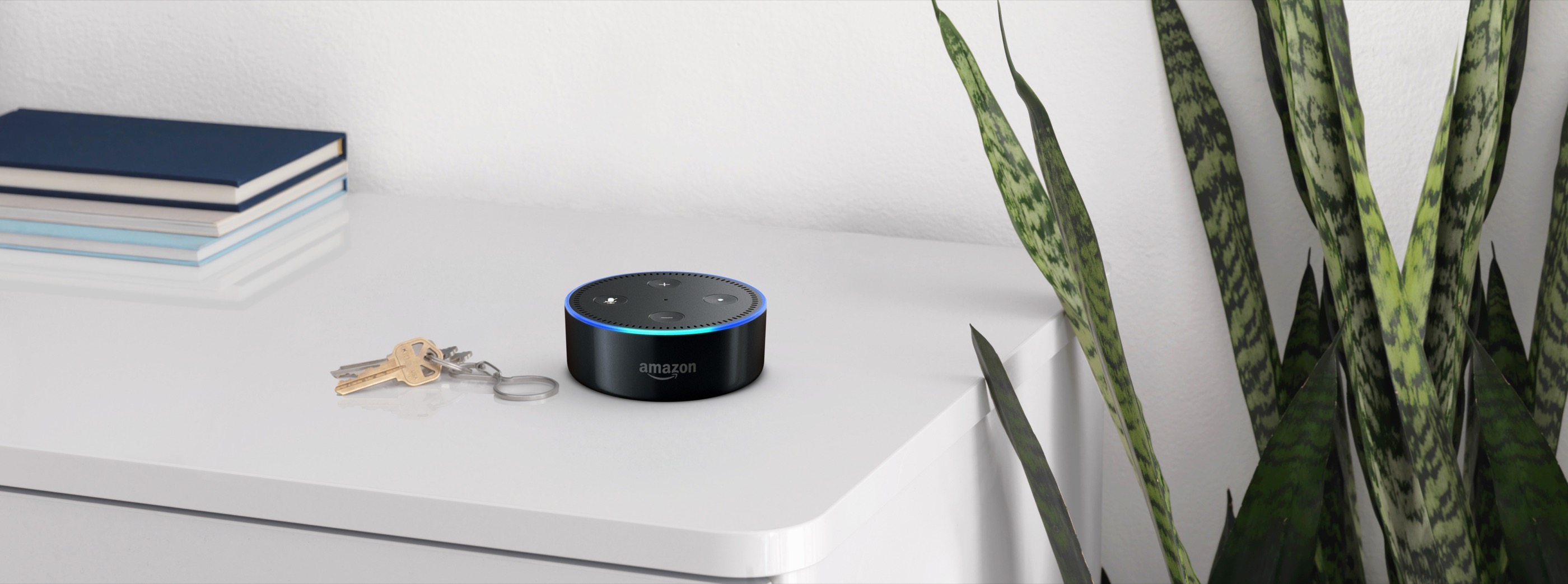
Source: Amazon.com
Moreover, with a price tag of about 40 euros, this technology has the potential to be more affordable and accessible in developing countries. This could open up greater accessibility to knowledge and services that have previously been out of reach.
Instant translation, teaching of languages and learning how to read and write; these are all things that can be advanced with the help of voice assistants.
3. Making the VUI ubiquitous
“The only thing that is better than voice is imagination…just imagine and the work gets done. But, that’s not happening soon.”
Dilip RS, Country Manager, Alexa Skills, India
At the start of the Internet era, there were some statistics about the number of websites. Can somebody count and find the amount of them today? Or another obsolete question nowadays: “Does my business need a website?”. The new VUI era presents the same challenge for companies, services, and platforms about their presentation through this new medium.
What kind of voice apps does the market need the most? The answer to this question could be there where voice assistants are serving customers at the moment. Now we can find them, e.g., at home, in cars, in offices, in hotels in the form of smart speakers, but also in headphones on the go too. What is the next big thing in the app world, the Instagram for voice? Some of them are on the market already.
These are the control of music playback and the smart home, setting timers. These are also the skills for helping the user to fall asleep, getting the weather forecast and playing voice-controlled games.
There is a need to create more of them and improve the existing ones, but indeed the new creators and future users hold the answer to the most successful apps of tomorrow. Maybe it will be another tool to express our creativity and connect with each other like the social networks of today, or maybe something that makes our lives easier and better.

Source: Amazon.com
VUI is not a standalone thing; it can and should work together with IoT devices, screens (e.g., Echo Show and Echo Spot, the Fire Tablets or the Fire Cube), input devices (e.g., cameras, keyboards, VR/AR glasses) and a new generation of gadgets (e.g., Echo buttons).
Voice applications can also work well with the present and future “non-technological” creations like, for example, board games. “When in Rome” is the first board game of this kind for the whole family, where Alexa helps players travel the globe.

Source: VoiceOriginals.com
The likes of Alexa, Google Assistant and Cortana are the new operating systems. These are platforms, and the success or failure of them depends on the quality of applications available.
4. New technology creates new challenges
“We can not solve our problems with the same set of thinking that gave rise to them.”
Ervin László, 1958
The most exciting thing for all of us is that everybody can be a developer and create voice apps. It has never been so easy to start building something for this new and exciting technology.
The entry level for developers is amazingly low. Some tools like Amazon Blueprints, Storyline or Bottalk allow you to create Alexa skills in minutes without any prior training. Does that mean that we will not need voice developers and designers in the future? Of course not!
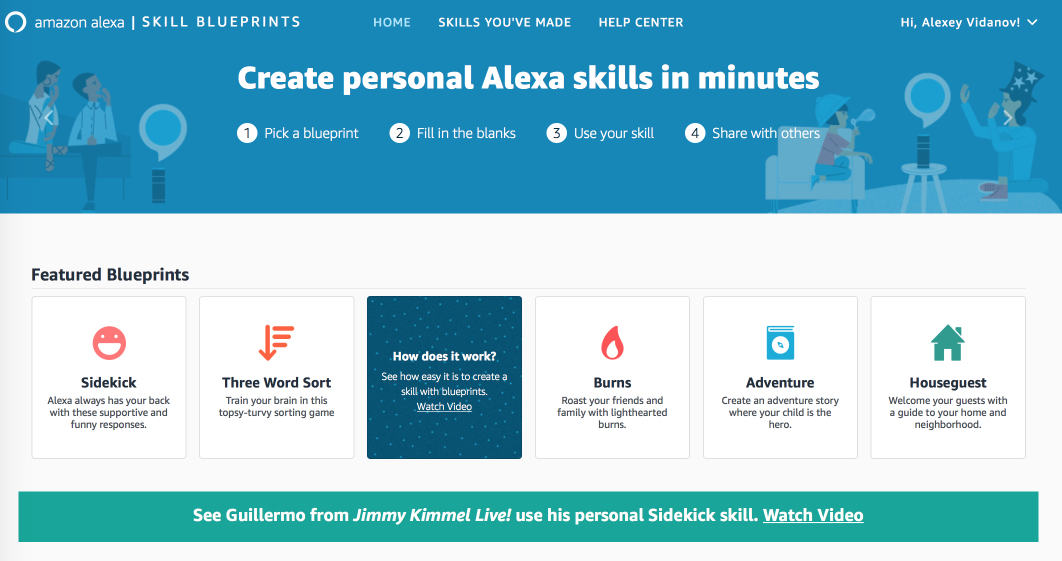
Source: blueprints.amazon.com
Quite the opposite, in fact. The need for more expertise in this area is evident when we take a look at some popular Alexa skills or skills of well-known brands. This situation exists probably because, in the same way that most of us can write, few of us are writers.
To design conversations and the best user experience, we need to learn a lot. To develop the future of voice, we need to cultivate creators who think voice-first. This new generation of developers will be able to integrate voice gracefully in our homes, cars and everywhere else.
They will create the user experience for multimodal interactions with screens, cameras, Augmented Reality (AR) and Virtual Reality (VR) systems. It is not enough to add the possibility of voice interaction; we also need to find proper use cases and improve the user experience for the best.
Right now, we are in the very early stages of voice design. The challenge is to improve and develop it. The CareerFoundry Voice User Interface Design Course, created in collaboration with Amazon Alexa, is a great starter to learn more about design aspects and start putting them into practice. This is a unique opportunity for you to shape the future of the next big thing in tech! If you want a more abbreviated introduction to the VUI process check out these guides:
- How to design voice user interfaces
- What are voice personas and placeonas?
- What is cognitive load in voice design?
- How to design Alexa skills (interview with an expert)
It is impossible to predict the future of voice design, but it is possible to contribute to it. Let’s start realizing our sci-fi dreams and create the time to come!
